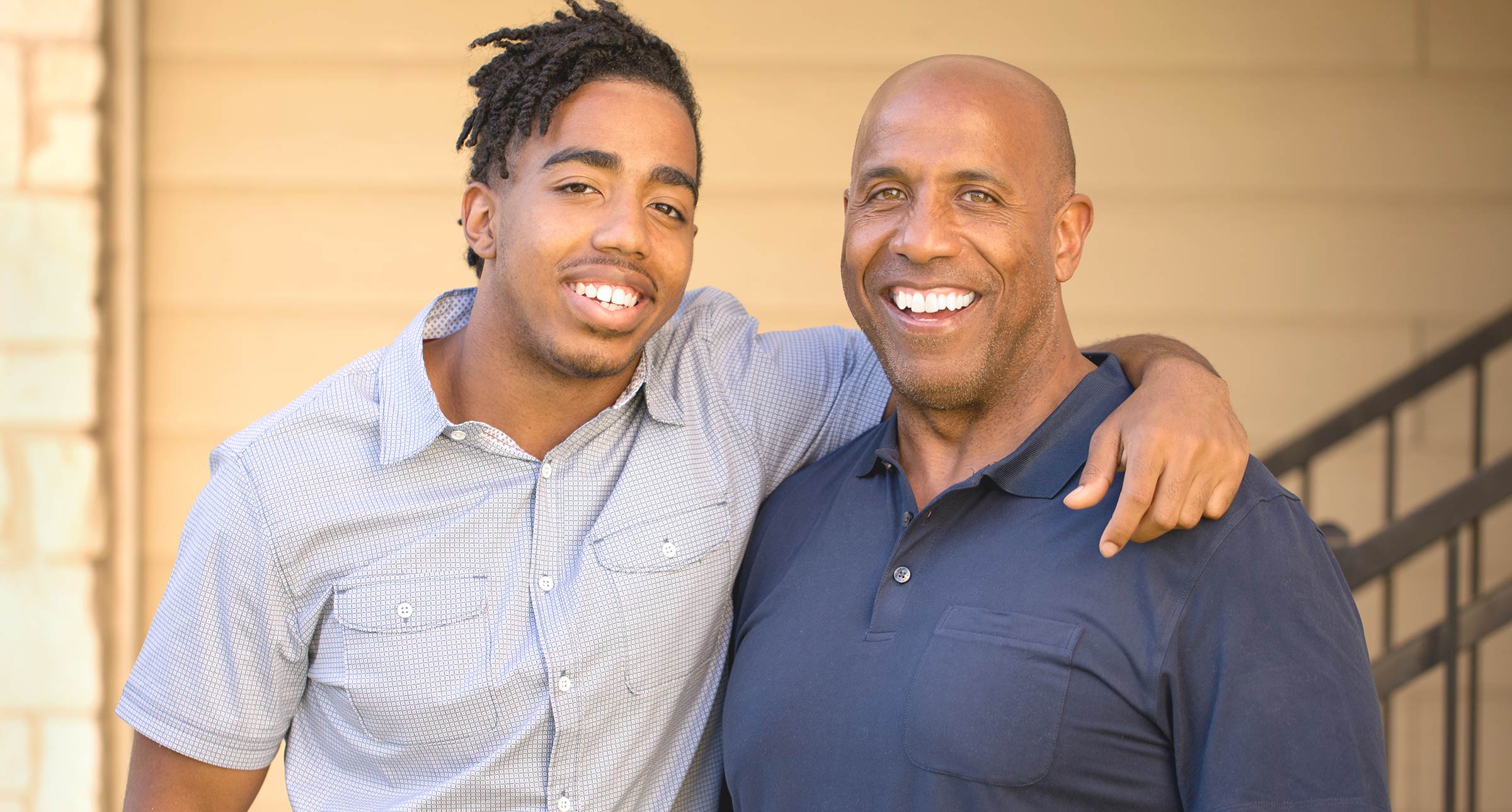I’m so glad you’re here, please, come take a seat. The lights are going down and the next act is about to start. Chris is feeling a little lost, and is struggling to tell his parents…
“Mom, Dad, I really need to talk to you.”
“Of course, son, is it about your school work?
“It’s kind of related—I don’t know if I want to go to university anymore.”
I bet this won’t go over well. Chris’ folks have been pushing him into a finance degree since he was in high school.
“I know I’ve done two years already, but I really don’t see myself working in an office, day in and day out until I retire. Especially not with numbers.”
Ooh, I recognize those looks! His parents want the best for him, but all their advice and direction has been geared towards their view of who he should be.
“Chris, this isn’t what we talked about, me and your mother. Finance is going to help you earn good money and you will have a very respected reputation in society! Look at your cousins; they are thriving in the finance business, working alongside their mother. And they never complained and were even at the top of their classes. Now please, focus on your studies, as we pay for them. We will not pay for you to change your mind and ruin your life.”
Ouch. This really takes me back. Some people just struggle to hear, especially parents!
“You never listen to me! You refuse to see what I want! It’s always been like that, you ordering and me executing the order—have you ever cared enough to ask me what I want?” Chris storms off to his room in his parents’ house, stuck in a circle of questions. “Why me? Why do I have to suffer? Why can’t they just listen? Do they even love me? What’s the point of this life, if it’s not about what I want to do? Where am I in all this—is it my life or theirs?”
Alright, he’s stuck. Let’s see what I can do to help. “Can we get the house lights up, please?”
Welcome to the Play: “Your Life!”
The theatre suddenly fills with light, and Chris stares into the empty rows of seats from centre stage. He’s confused, and I don’t blame him. I’ve seen this play before, but with a different actor in the role of “Chris” (more on that later), and sometimes it’s hard to spot when you’re the lead—especially when someone else is writing the script.
“Hi Chris, how are you doing today?”
I ask as I make my way down to the front, taking a seat on the edge of the stage.
“Not very well… and now I’m even more confused! What’s going on? Why am I in a play?”
“Come take a seat next to me, so we can take a look together. What do you see? What do you think this is?”
Chris looks into the audience, his eyes drifting over you to the back row where two people urgently converse over an open book.
“I see my parents in the back reading some book—is that a script? Is this my life? Are they reading what to say to me!?”
“Everybody has a part in the play, and sometimes they forget their lines. They need to remember what they’ve been told, so that they can share with you what they know.”
“So, they’re just repeating things that they heard, too?”
“Sometimes, yes. Sometimes there’s room to improvise, based on past experiences. Tell me, how do you feel on the stage? Does your part feel like it reflects you?”
“Not really. I’m just standing there, waiting for something to happen or for them to tell me what to do.”
“How do you feel about this? Would you change anything?”
“I would change everything! Nothing feels right. I feel trapped, there are scripts, and I don’t know any of the lines. I’m stuck, and angry, and don’t know how to change anything….”
How many of us have felt unseen and unheard, just like Chris? The pain of playing a role that doesn’t belong to you, that feels estranged, being on a stage that doesn’t reflect your life and who you want to be!
It’s My Life…
I was once in the same situation as Chris. Growing up to be what my family wanted brought a lot of pain, anxiety, and unhappiness. I always felt out of place while working in finance; it didn’t click with my personality. I asked myself: Can I see myself doing this, every day, until the end of my life?
The answer was a definite no, a very loud NO, shouting every day in my head and body. Until there came a moment when a curtain opened across my eyes and I saw my life as if on a theater stage: a really bad play, numbly acted, completely unaware of the sets around me or of who was feeding me the lines. That’s when I started asking myself: who am I in my life?
Becoming Aware of Your Feelings
As a therapist seeing clients struggling with the same situation, now I ask them: who are you in your life? The answer I often get is, “I don’t know,” as clients are trying to discern between their quiet voice and the voice that has always told them how to be and what to do; whether it’s parents, an older sibling, or someone else. Creating awareness about ourselves and our place is the first step in giving life to our voice, to creating our own identity as individuals.
Easier said than done, right? Especially if you’re still living in your parents’ home, or dependent on their financial backing. Chris has started this journey: he’s become aware of his feelings—stuck and angry—but doesn’t know where to go from there. He’s transitioned from just having emotions to being aware of those emotions, but still has another step to go: learning to effectively express them. So let’s join Chris on this journey, and learn with him as he makes sense of his feelings and emotions, the first step in clarifying what he wants and needs.
Pay Attention to Your Body
“Okay Chris, let’s take a moment and do a body scan. What sensations are you feeling?”
A body scan is a great way to start understanding what you’re feeling, because the body offers great information about the sensations and perceptions that you might not be consciously aware of. First, find a calming place where you can take a few moments to scan your body, starting from the top of your head and finishing with the soles of your feet. Take deep breaths and relax as you scan down, paying attention to the sensations in your body. Be curious, let your body tell you what it feels and where.
You may find a pressure in your head or shoulders, a feeling of tension in your throat, a tightness in your chest, a boulder in your stomach, a heaviness in your arms or legs, or a myriad of other things—these all are emotions reflected in your body.
“I feel pressure on my shoulders and a feeling of tension in my throat, like I can’t get words out of my mouth. There’s also the sensation like a fire burning that starts in my stomach and goes up towards my chest.”
Through these sensations in his body, it sounds to me like Chris feels stuck and angry. By becoming aware of these feelings, I can help Chris label them, which in turn can help him express them in healthier ways. A growing body of research has revealed that being aware of an emotion and labeling it can help reduce the negative expression of the emotion, as well as the intensity at which it’s felt.
Once labeled, you can follow these emotions to understand what you need—but what if the emotion that you’re feeling is actually hiding a different emotion underneath?
Reflecting on What Emotions Communicate
When discovering and labeling your emotions, you may find rather than getting to your actual need, you just find more feelings, more pain. Which means it’s time to ask those feelings to guide you to what is hiding underneath.
“Now Chris, the sensations you’re feeling in your body, what emotions do you think they represent?”
“I’m feeling stuck… and angry!”
Chris’ sensation of “stuck” and “angry” creates a very diffuse mood, with confusing feelings, as he tries to make sense of what is going on inside of his body.
“And what do you think these sensations and feelings represent to you?”
“I guess they’re trying to tell me that whenever I try to talk to my parents about what I want, I get stuck and the words won’t come out. I get scared to talk to them, like when I disagreed with them as a kid.”
While it makes sense that Chris’ anger is directed towards his parents and their rules, when searching for meaning about feeling stuck, Chris discovers an old, familiar, intense feeling of fear; one he’s had since he was a boy. A fear that always appeared when he wanted to express his likes and dislikes to his parents, a fear of being scolded, rejected, not being listened to, or taken seriously.
“If this fear could talk, what do you think it would tell you it wants?”
“It wants me to be accepted for who I am; to be listened to, seen, and heard in my needs.”
Adaptive & Maladaptive Feelings
In Emotion Focused Therapy, we talk about emotions in certain ways: primary adaptive emotion, and primary maladaptive feeling. Primary adaptive emotions are automatic emotions to different situations that prepare us for an appropriate response in the world, thus helping us to be aware of our immediate needs and to respond appropriately to those needs.
These emotions are: sadness at loss, that reaches out for comfort; fear at threat, to warn us of danger; anger at violation of boundaries, to protect us from harm; grief, that lets go of what is lost; disgust, at intrusion; and hopelessness that lets go of a need that cannot be met. When we meet the associated underlying need, we tend to feel content, connected, safe, and whole with ourselves and/or others.
Primary maladaptive emotions are also automatic emotions, but rather than a response to a need in the present, they are more a reflection of past unresolved issues. They are often based on traumatic learnings and, while they served us in that moment in time, they are no longer adaptive in the present moment.
These emotions are: debilitating fear; unconscious insecurity; the sadness of lonely abandonment; shame and humiliation; destructive rage; and unresolved grief.
So for Chris, his anger is a primary adaptive emotion because it’s trying to signal him to protect himself by setting healthy boundaries for himself. Beneath feeling angry, beneath his stuckness is the primary maladaptive feeling of fear—where he feels afraid of being left alone and unheard.
Now that Chris knows of his hidden emotions, by focusing on bodily sensations and discovering his unmet needs, how can he get his needs met?
Attending Your Unmet Need
Attending to your unmet need may come in different forms, such as: negotiating with the ones responsible for that unmet need, like Chris and his parents; or when those responsible aren’t available emotionally and/or physically to attend to it, you become the one responsible for it.
”How does it feel right now, to be more aware of your emotions?”
“I feel a sense of relief. But how do I get to not feel like this anymore? Trying to talk to my parents will just make it worse.”
“Would you accept to be the one responsible for your needs? To look and listen to them?”
Asking yourself how to do this can be incredibly tough, especially when you don’t know where or how to start—but I got you! Start by offering yourself patience, self-compassion, and understanding. Rome wasn’t built in a day, so don’t worry when it takes a while. Next, you need to learn how to change the emotion with another emotion, and practice corrective emotional experiences. This is done through psychotherapy, like Emotion Focused Therapy, where you’re guided and supported by a therapist to become aware of your emotions and their underlying needs, as well as learn new, healthy ways of being and reacting. And of course, it will also be helpful to learn how to do the research and frame your arguments in a compelling manner to present your case to those who love you. If you truly do not have the support you need to make plans in your own life, it may be helpful to find allies in other family members or friends and it will certainly be important to develop a pragmatic plan for your well-being.
Why Emotion Focused Therapy?
Psychotherapy plays an important role in creating a safe space for your emotions to be felt, seen, labeled, accepted, and transformed; for your weak inner voice to grow in strength. It’s a safe place where you can share your experiences and suffering, and learn to understand them.
Emotion Focused Therapy takes a neo-humanistic approach designed to help clients become aware of and make productive use of their emotions. As therapists, we help people to better identify, experience, accept, explore, make sense of, transform, and flexibly manage their emotions. As a result, clients become more skillful in accessing the important information and meanings about themselves and their world that emotions contain, as well as more skillful in using that information to live vitally and adaptively.
“How was this experience for you today Chris?”
“Thank you, things got clearer for me. I understand what I’m feeling more.”
“Remember Chris, you’re not alone in this—you can and should ask for help! You are the main character in your life!”
Chris’ journey is just beginning, but he’s on his way to including his own voice along with those who love him as a script writer in his own play. He knows now that he must be an active participant in his own story on the stage—but is still struggling with what this will do to his relationship with his parents. He’s overwhelmed with the sense of duty, respect, and being a good child, and it’s left him feeling a lot of shame, anger, and fear. While there are no easy answers for Chris, me, or you, taking an active role in the journey is better than allowing yourself to be silenced out of fear.
If you find yourself just like Chris, struggling to find your own voice and make sense of your emotions, I invite you to reach out to me at Transforming Emotions for a free consultation call. Let me ask you: who are you in your life? And let’s take the journey of finding out together.









